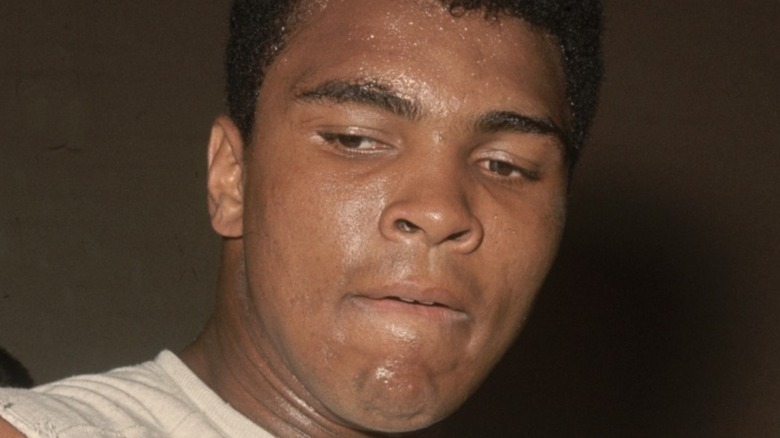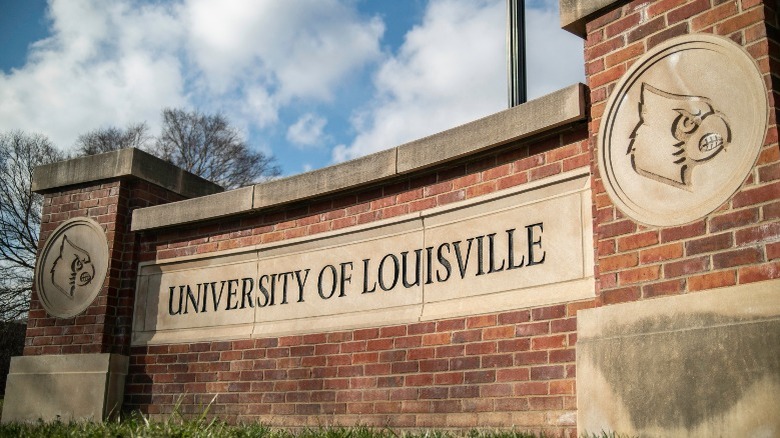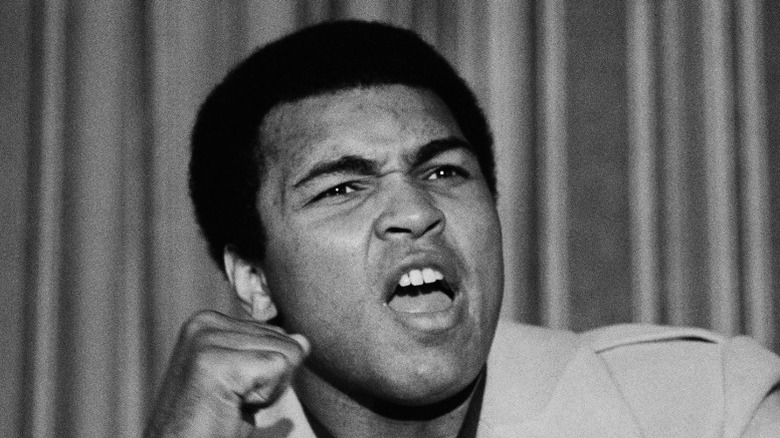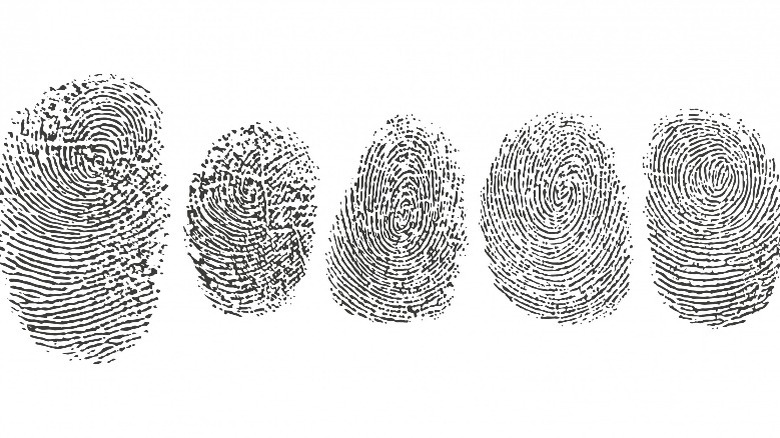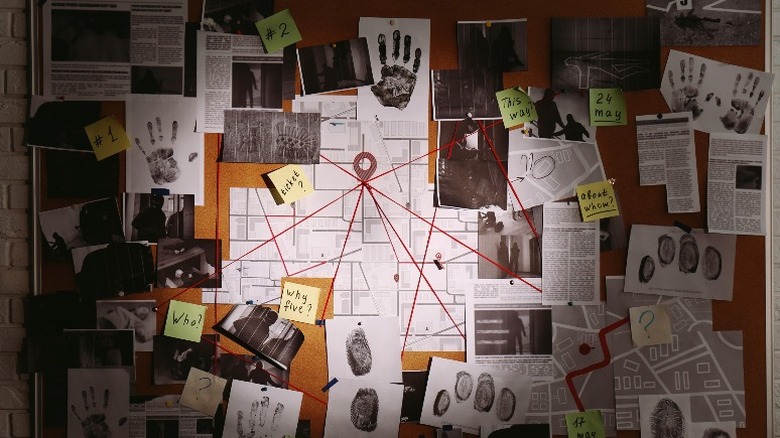The Unsolved Murder Of Civil Rights Icon And Muhammad Ali's Attorney, Alberta Odell Jones
The harrowing road to civil rights was paved by the blood of dozens of activists during the 1960s. Racial bigotry and fear of change led to the murders of many brave men and women who put their very lives at risk to achieve the greater cause of equal rights and equal protection under the law.
During the 1950s and 1960s, the news was filled with horrific tales of how the police, local chapters of the KKK, or unruly mobs attacked and killed these martyrs for their cause (per Southern Poverty Law Center). The Reverend George Lee's work to register Black voters led to his assassination in 1955. In 1963, Medgar Evers was killed when the bullet fired from a sniper's rifle ripped through him. In 1964, James Earl Chaney, Andrew Goodman, and Michael Henry Schwerner were arrested by police and then turned over to the Klan, who murdered them.
The nightmarish stories go on and on, with every step toward freedom marred by brutal crimes against the brave souls who wanted nothing more than a better life for themselves and their fellow man. It seemed like wherever there was a fight for equality, there was a threat of attack. And no matter one's status, color, or background, anyone fighting for civil rights had a target on their back.
One such case involves the attorney of champion boxer Muhammad Ali. Her name was Alberta Odell Jones, a woman whose murder remains unsolved more than 50 years later.
A body is pulled from the Ohio River
On August 5, 1965, a body was discovered floating in the Ohio River. When it was retrieved, police were quickly able to identify it as local attorney and prosecutor Alberta Odell Jones. According to Jones' mother, Jones had left the night before to meet with a friend about a legal issue (via The Lineup). She never made it back home. At some point on the night of August 4 or early in the morning of August 5, Jones was beaten in the head with a brick until she was unconscious (per The Washington Post). Her body was then dumped into the Ohio River by her assailant(s). Her official cause of death was drowning.
Though a witness would later say that three men were seen throwing what looked like a human body off of the Sherman Minton Bridge, police believed that whoever put Jones' body into the river had done so from a boat ramp. No matter how her body wound up floating in the moving waters of the Ohio, police did recover the rental car Jones had been driving. There was blood on the inside, leading investigators to the conclusion that she had been attacked after she had stopped. Was her killer in the car with her, or was she followed and forced to stop before she was attacked?
Three years later, a purse was found hanging from the bridge that she may have been thrown from (per Blackpast). For many years after, the case went cold.
Jones was a pioneer for both women and people of color
Alberta Odell Jones was a native of Louisville, Kentucky. After attending Louisville Central High School, she enrolled in the segregated Louisville Municipal College for Negros (via Blackpast). While she was attending, this school combined with the University of Louisville. Jones continued her education there and excelled. When she walked to her graduation from the university, Jones was third in her class. But Jones didn't stop there. She was accepted into the Howard University School of Law, where she would graduate in 1958. The following year she sat for the bar and became one of the first Black women to pass it in Kentucky. Soon after, she opened her law practice in Louisville.
In 1964, Jones was hired as the Louisville city attorney. Jones was not just the first Black woman to hold this position but also the first woman. The year she died, Jones was appointed a prosecutor for Jefferson county. Her primary role was prosecuting domestic relations, leading her to file charges against a lot of white men in the area for spousal abuse.
Apart from her role as an attorney, Jones was a civic activist. Her passion was getting Black citizens involved in the political process, and she knew that voter registration was the key. She created the Independent Voter's Association, leading to an estimated 6,000 new Black voters on the county clerk's rolls (per Blackpast). This move was partially responsible for an almost total regime change in municipal government in 1961, as the mayor and several aldermen were voted out of office.
She served as Muhammad Ali's first attorney
Alberta Odell Jones had first established herself as a Louisville attorney not long after successfully passing the state bar exam in 1959 (via Blackpast). One of her first clients was a young boxer named Cassius Clay. Clay was a multiple Kentucky Gold Glove winner and had recently won a gold medal in the light heavyweight boxing division at the 1960 Summer Olympics in Rome (via Biography). His star was quickly rising as he was prime to shed his amateur status and go on to fight at the professional level.
To do this, Clay needed legal representation. He found a competent attorney in Jones, whom he hired to represent him. Jones would serve as the first attorney to be hired by Clay and got his career in legal order before his first professional bout. Jones worked to draft the contract for the fight and was responsible for Clay meeting his trainer Archie Moore (via The Lineup).
ESPN reports that Clay won his first professional fight, beating Tunney Hunsaker in the ring after six rounds. Clay would go on to change his name to Muhammad Ali and be a dominating force both inside and outside the ring. The 56-5 record he posted in the sport is among the best in its history.
A new break in the case was discovered in 2008
As for the murder of Alberta Odell Jones, the case went cold quickly. But at least one person close to Jones believed that more resources would have been assigned to solving her murder if Jones had been white. In an interview with The Washington Post, Jones's sister stated that "because things were still so segregated in Louisville then. I believe, if she had been a white woman prosecutor, they would have turned over heaven and hell to solve this. But she was Black. They didn't do anything about it."
The Lineup reports that follow-up investigations have revealed that the Louisville police department worked against the case and even lied to Jones' surviving family members. Who killed Jones has been a matter of speculation for decades. Was it a man she had prosecuted in court? Could it have been a group of people angry about her civil rights activism and politics?
It would be more than 40 years before there were any significant breaks in the case. In 2008, sets of fingerprints found inside Jones's rental car were matched to a man who was 17 at the time of Jones's murder (via The Lineup). He was brought in for questioning and submitted to a polygraph test. The test concluded that the man showed signs of deception when asked about Jones's murder. But would it be enough to prompt police and prosecutors to press the investigation any further?
A cold case with hopes of resolution
Prosecutors felt that they didn't have enough evidence to pursue the case any further. They told Alberta Odell Jones' family that witnesses in the case — as well as the original investigators — were dead, and that would make filing charges impossible (via The Lineup). But one tenacious professor from Bellarmine University begs to differ. In her research, Lee Remington discovered that this was a lie, and that many of the key players from the case were still alive. She told The Washington Post that there was a lot of evidence collected from the case and was in disbelief that there were also missing pieces of evidence. "The evidence is now missing. Misplaced? Lost? Thrown away? Destroyed? Where did it go?" she fumed.
In 2017, funds from the 2007 Emmett Till Unsolved Civil Rights Crime Act were awarded to the Louisville police department to assist them in solving the case. Homicide detective Josh Carr stated that the case had never been closed and that many detectives had worked on it tirelessly over the years.
A documentary about the life and murder of Jones is slated to be released in 2023. "Murder of a Trailblazer" is directed by Keenan Conigland and Maggie D. Hickman and will star Randy Roberts (per IMDb).
